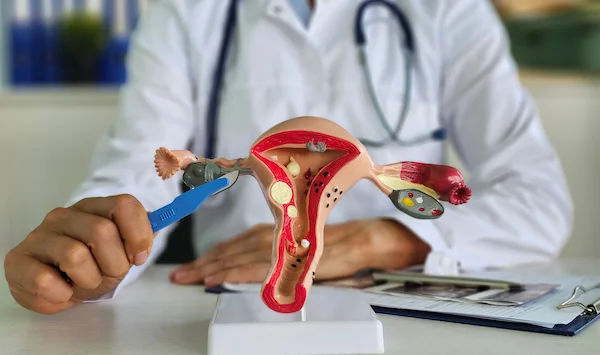- female
- 30 Years
- 29/01/2025
I'm dealing with pain in my lower abdomen that's making it really hard to move around. Walking, turning over in bed, sittingeverything hurts. I've already tried taking the painkiller and antibiotic that my doctor recommended, but nothing's helping. What could be causing this, and is there anything else I should try?
Answered by 1 Apollo Doctors
Its likely superficial muscular than internal pain. I would suggest you get ultrasound abdomen if pain persists
Dr. Chandra Suggests...
Consult a Obstetrician and Gynaecologist
Answered 04/07/2025
0
0

More Obstetrics & Gynaecology Health Queries
View allI'm Aysha, and I'm 24 years old. I've got a really bad case of cold and cough, and I'm also 8 months pregnant. I'm thinking about taking Pankajakasthuri granules for it, but I'm a bit worried. Is it safe for me to use this while I'm pregnant?
Mouth Ulcer Causes:* 1. Viral infections (e.g., herpes simplex) 2. Bacterial infections (e.g., streptococcal) 3. Fungal infections (e.g., oral thrush) 4. Trauma or injury 5. Nutritional deficiencies (e.g., vitamin B12, iron) 6. Autoimmune disorders (e.g., aphthous stomatitis) Self-Care:* 1. Maintain good oral hygiene. 2. Avoid spicy, acidic, or sharp foods. 3. Use a soft-bristled toothbrush. 4. Apply ice or cold compresses. 5. Stay hydrated.
Answered by 1 Apollo Doctors
I'm really worried because I've noticed pinworms in my vaginathere were three of them. It's been happening for about a week now, and I can actually feel them moving around down there. What should I do?
Pinworms can cause irritation and inflammation in the vaginal area in rare cases of heavy infestation. The parasite can travel from the anal area to the vagina, uterus, fallopian tubes, and pelvic organs. This can lead to complications such as vaginitis and endometritis.So you have to take combination therapy with oral mebendazole (Vermox) and ivermectin (Stromectol
Answered by 1 Apollo Doctors
How many babies can a woman have in her lifetime?
According to research, a woman can have somewhere around 15 to 30 babies in her lifetime.
Answered by 1 Apollo Doctors
Disclaimer: Answers on Apollo 247 are not intended to replace your doctor advice. Always seek help of a professional doctor in case of an medical emergency or ailment.




_0.webp)
